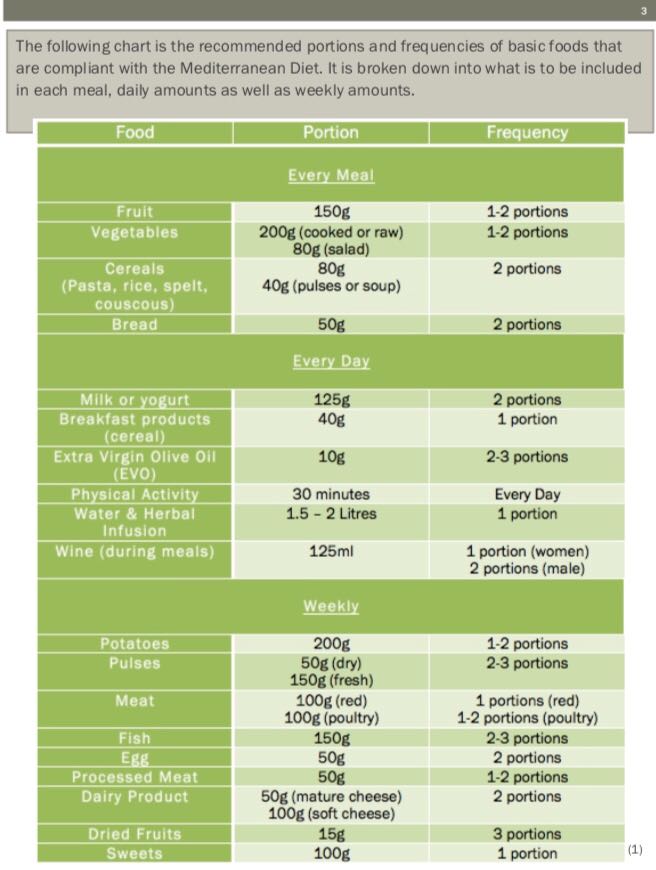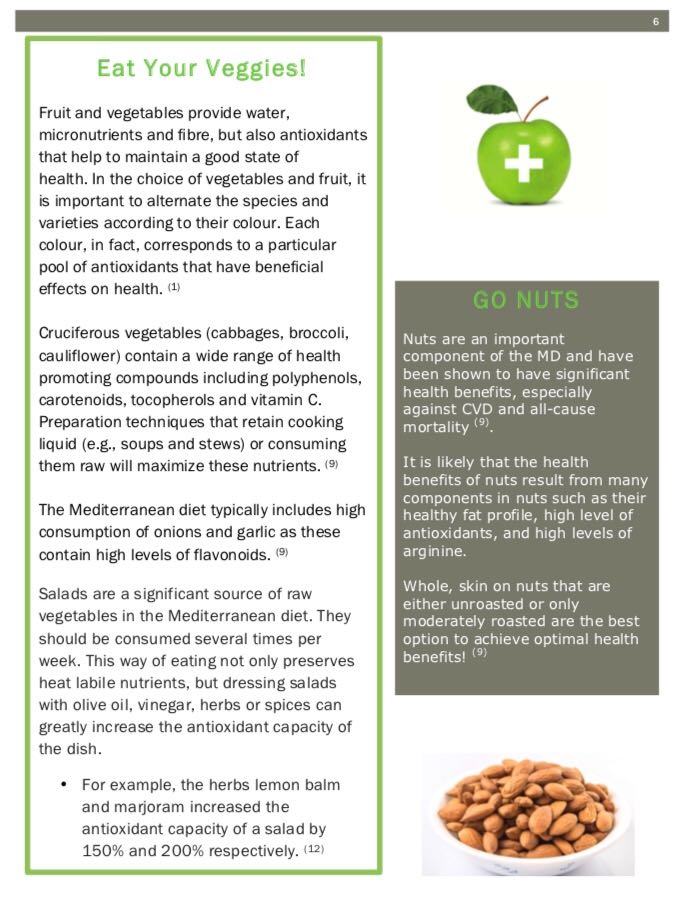Eating to Prevent Chronic Disease
What is a Mediterranean Diet?
The Mediterranean diet is a diet high in fish, legumes, whole grains, vegetables, fruits, nuts, seeds, and olive oil. It is low in high fat meats and dairy products.
If you want to be on a healthy Mediterranean diet you should try eliminating cream, butter, margarine, carbonated and/or sugared beverages, and processed foods such as pastries, industrial bakery products, industrial desserts (puddings, custard), French fries, potato chips, cakes and sweets.
It is a good idea to limit your consumption of cured meats, red meats, and cured and fatty cheeses. When choosing animal products, choose healthy sources (Grass fed, Free range, wild etc) that have minimal contaminates and a good balance of omega-3 and omega 6 fatty acids.
The Mediterranean diet is also characterized by a high intake of b-carotene, B vitamins, vitamin C, vitamin E, folic acid, polyphenols and a wide variety of phytochemicals that are found in the various plant foods frequently consumed (1).
Research shows adherence to Mediterranean diet is effective in prevention of cardiovascular disease, depression, metabolic syndrome and Type 2 Diabetes. The information to follow summarizes a bit of the research.
Supporting Research
Cardiovascular Disease
The Mediterranean diet has been ranked as the most likely dietary model to provide protection against coronary heart disease. (2)
In a 2018 study involving persons at high cardiovascular risk, the incidence of major cardiovascular events was lower among those assigned to a Mediterranean diet (Med Diet) supplemented with extra-virgin olive oil or nuts than among those assigned to a reduced-fat diet. (3)
3 groups studied
o Low-fat diet
o Mediterranean Diet with added nuts
o Mediterranean Diet with added olive oil
Risk of combined heart attack, stroke and death from cardiovascular disease compared to low-fat diet was reduced by 30% in the Med Diet + Olive Oil and 28% in the Med Diet + Nuts.
Good adherence to a Mediterranean diet resulted in a more favorable health status as reflected by improved cardio vascular disease risk factors, such as lipid profile, blood pressure, and glucose, especially in persons with diabetes and compared with a low-carbohydrate diet. (4)
Higher adherence to a Mediterranean diet was associated with lower mean levels of blood pressure after 6 years of follow-up. (4)
Diabetes
Mediterranean diet supplemented with extra virgin olive oil (EVOO) or mixed nuts has shown to reduce the incidence of type 2 diabetes by 40% and 18%, respectively, compared with a low-fat control diet. (5)
Depression
High adherence to a Mediterranean diet high in whole grains, fruits, vegetables, nuts, lean meats and olive oil was protective for depression at all ages throughout the lifespan. Even moderate adherence to a Mediterranean diet was protective in younger individuals. For older individuals, the research showed that the benefit to mental well-being and depression prevention was only associated with those individuals who adhered to a more strict Mediterranean diet. (6)
A 2017 study examined 56 men and women with major depression who all had a very poor diet containing lots of highly refined foods, very few fruits and vegetables, and few lean types of meats. Implementing a Mediterranean diet that was high in whole grains, fruits, vegetables, nuts, lean meats and 3 TBSP of olive oil per day led to 32% of participants no longer meeting the criteria for depression after only 12 weeks! (7)
Metabolic Syndrome
Metabolic syndrome is a cluster of 3 or more related cardiometabolic risk factors:
Central obesity (determined by waist circumference)
Hypertension
Hypertriglyceridemia
Low HDL cholesterol levels
Hyperglycemia.
Research has shown that olive oil supplementation can decrease central obesity and elevated fasting glucose levels. Supplementation with nuts (rather than olive oil) has also been shown to reduce central obesity. (8)






